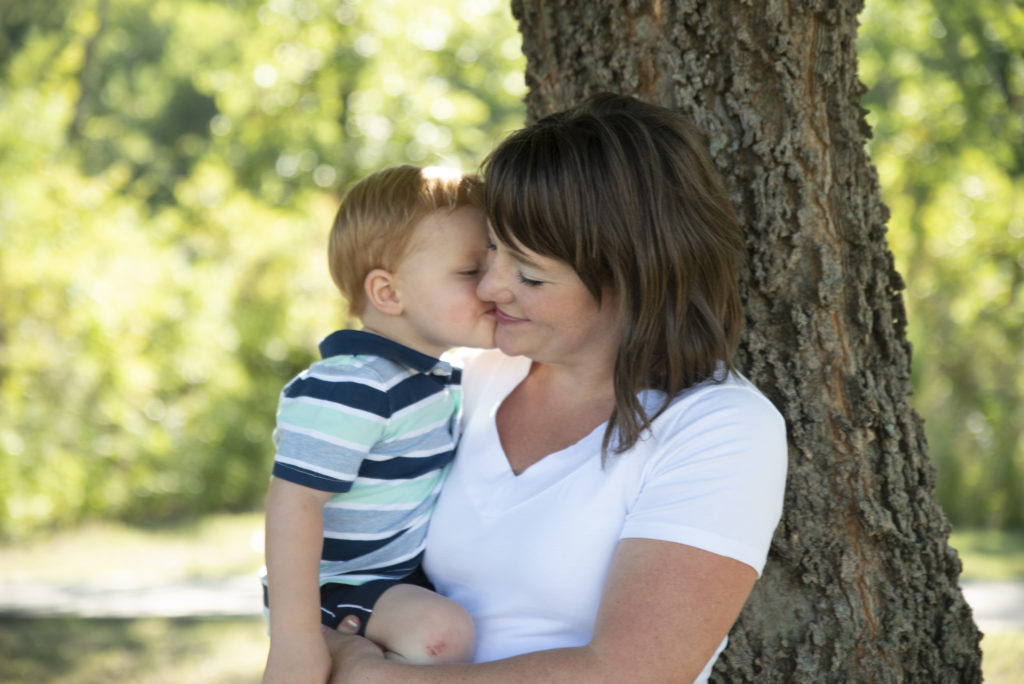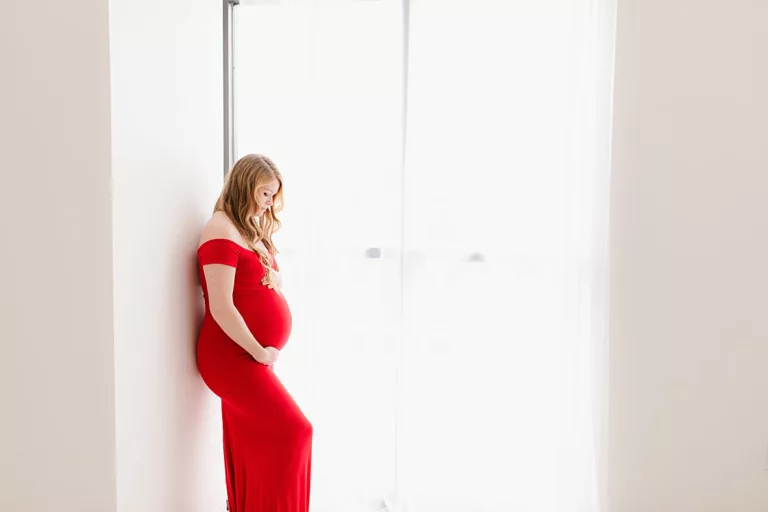How to Help Your Newborn Sleep

How to Help Your Newborn Sleep
Thoughts from a Dallas Area Pediatric Sleep Specialist
One of the biggest concerns new parents have is how to help their newborn sleep, so they can get sleep themselves. Sleep helps improve our thinking, coordination, motor skills, and even digestion. When you’re taking care of a newborn, these are all extra important. And often overlooked or pushed aside because being a new parent is HARD. There are so many different things to worry about and places to find information. Sometimes, people are just told that lacking sleep is normal, and eventually it gets better. But there is help out there for newborn parents, and I’m here to provide you resources. I recently interviewed a Dallas area pediatric sleep specialist, Hilliary Giglio, from Tranquil Beginnings to get some ideas to help ease your mind about newborns and sleep.

What is a pediatric sleep specialist and what should newborn parents expect?
Melinda: What exactly do you do as a pediatric sleep specialist, and what ages do you serve?
Hilliary: I work with exhausted and frustrated parents of babies and children (ages birth through elementary school) who struggle with sleep. Through custom sleep plans and personalized follow up support I help them go from sleepless nights and frustrated days to rested, rejuvenated, and back in control of their lives.
Melinda: I think many new parents have a lot of fear when it comes to their newborn’s sleep patterns. What can you say to them about normal newborn sleep, that might ease their minds?
Hilliary: Newborns sleep a lot – though not always for long stretches at a time! Most newborns need 16-20 hours of sleep each day. I love when parents are thinking about sleep from the start, but I also encourage parents to let their babies do as much eating and sleeping, however they’d like (as long as it’s safe!), within those first few weeks. Some say it’s “survival mode,” but I like to think of it as recovery, bonding, and getting to know your baby. Initially newborns can have their days and nights mixed up and may sleep more during the day (with super long naps) than they do at night. This is normal, but there are things you can do to help them correct those patterns. Know that newborns will wake to eat several times a night and they will likely need some helping calming their nervous system so that sleep can come. Swaddles, loud shushing, swaying, and pacifiers can all be helpful tools to help your newborn settle before sleep.
Melinda: Are there misconceptions about newborn sleep that you have to address with parents frequently?
Hilliary: A lot of parents don’t know that there are things you can do to gently lay the foundation for healthy sleep habits from the start. While formal “sleep training” is only applicable to older infants and beyond, you absolutely can begin to shape newborns’ sleep. And, if you put these healthy sleep habits in place from the beginning, you can often avoid the sleeping problems that bring families to me to correct with babies that are 4, 6, even 18 months old. While we can’t teach a newborn to sleep through the night because they need to eat in the night, we absolutely can teach them to fall asleep independently (ie you place them in their crib and they drift off to sleep without help) and set them up to be able to consolidate sleep much quicker than they would on their own.
What is Available to Improve Newborn Sleep
Melinda: There are a LOT of products out there that are supposed to help newborns and babies get to sleep and then stay asleep. From blankets, to sound machines, to fancy bassinets, new parents can end up spending a lot of money on the hope that they’ll get good sleep. What products do you recommend that you find consistently help?
Hilliary: Oh my goodness, yes! There are a TON of products on the market claiming to solve all the sleeping problems! Unfortunately, however, most of them create sleep habits that have to be broken later, because they become a “sleep prop” (or something your baby comes to depend on for sleep to come) and others aren’t considered safe for sleep even though they are marketed to be for sleep. When it comes to the sleep environment, both for safe sleep and for avoiding sleep props, I recommend a bare crib with a firm flat mattress and a tight fitting sheet. Swaddles can be great tools for newborns to help them calm their nervous system and control their Moro Reflex, but should be removed once the child shows any signs of beginning to roll or before it becomes a prop and they struggle to sleep without it. Babies of any age can safely wear a sleep sack (wearable blanket), so graduating to a sleep sack after the swaddle is a great way to add a layer of warmth and cue the brain and body that sleep is coming. Continuous white noise is also a good tool to help drown out environmental noises that could wake your baby. Save your money on the fancy bassinets, Dock-A-Tots, sleep suits, and musical mobiles! Parent’s money would be better spent learning to teach their child how to sleep independently than on a bunch of gadgets that only provide a band-aid approach to sleeping issues and have to be dealt with when they outgrow them anyway.
Melinda: Other than buying products, what are your top tips for helping parents get through the first year as easily as possible?
Hilliary: The most important thing that will change the course of that first year in regards to sleep is teaching them healthy independent sleep skills from an early age, by avoiding the use of sleep props or removing them when your child is old/big enough to teach to sleep without them. This is the #1 thing to ensure your child gets the sleep they need to grow and thrive and parents get the rest they need and deserve to be a healthy, happy, and functioning parent. Also, learn about age appropriate wake windows and how to handle nap transitions. Know that developmental milestones are the number one reason for sleep regressions outside of the 4 month regression (which is the only biological one) and that staying consistent with your expectations around sleep, while helping your baby master their new skill during the daytime, is the best way to have them blow over as quickly as possible. And finally truly understand why sleep is so important. The research is astounding on the impact sleep deprivation has on babies and parents alike….physical, mental, and emotional health, learning and retention, immune function, interpersonal relationships, you name it… the list goes on and on. Sleep is a necessity, not a luxury, and an important component to a healthy lifestyle. When it is lacking, health suffers.
What Resources Are There?
Melinda: When new parents are struggling with sleep, we know it can be difficult to really do the research to solve the problem because they are so sleep deprived. What resources do you recommend parents look at first?
Hilliary: There are a ton of resources out there. Different books on infant sleep, online programs, mommy blogs, the black hole of “Google,” and sleep specialists (like me). The thing is, many of these different sleep resources may provide helpful information and “work,” but finding the right approach for your baby and your family can be hard, time consuming and overwhelming. Then if you do find an approach or method you align with, you may have questions when you begin to implement it that the book or blog can’t answer. There are a lot of nuances in sleep teaching and sleep is complex. But that’s why I specialize in helping parents teach their babies and children to sleep well. Because I take the need for research and the guesswork out of it. No more Googling, no more staring at books on the bookshelf, no more online programs that are cookie cutter. I conduct a comprehensive assessment on each of my clients that looks at daytime schedule, nighttime schedule, sleeping issues, sleep goals, behavior/temperament, family preferences, parenting style, whether a family uses daycare, etc….you get the idea. This allows me to customize and tailor a sleep plan, which is holistic in nature covering bedtime, night wakings, naps, the sleep environment, the sleep teaching method, the appropriate schedule, the relationship of feeding to sleeping, and more.Then I support my clients over a 2-3 week period as they implement their sleep plan, answering every question they have, making recommendations for changes to the plan as needed, helping them stay consistent and accountable, and ensuring they reach their goals (and not leaving their side until they do!). So, if researching and approaching sleep teaching through a DIY lens sounds like a bit much, then please reach out and let’s chat.
Melinda: At what point do you recommend parents consult with you? What is the process of working with a sleep consultant like?
Hilliary: First and foremost, don’t wait until you’ve reached your breaking point to reach out for help! You don’t have to endure sleepless nights just because you brought a child into this world. I’ve met so many mamas that feel they have to wear sleep deprivation like a badge of honor and it simply isn’t so! The “right time” to work on healthy sleep habits is different for every family. For some, they like to get it right from the beginnning and work to avoid the sleeping problems that many families come to me for. So, I offer a Newborn Sleep Education Package that is available to expecting parents and newborn parents and supports them through the first 12 weeks of their baby’s lives. I then work with families who have infants, toddlers, preschoolers, and even elementary school aged children to help correct sleeping issues. From night weaning to transitioning to the “big kid bed” to older kiddos who refuse to spend the night at friends’ houses because they need mom and dad to lay with them to sleep….and everything in between. The first step is a complimentary sleep evaluation call so they feel safe and know they are in really good hands! This is an opportunity for anyone interested to chat with me for 20 minutes about what’s going on with sleep for their family and learn how I can help. Book online at www.tranquil-beginnings.com/book-online/sleep-evaluation-call. When someone decides they want to work together at that point, the assessment starts, then we have the sleep consultation, families begin to implement the plan and I support them every step of the way. This work can be done 100% virtually (I work with families across the globe), although I do offer some additional in-home support options for families local to the D-FW area.
Don’t Lose Your Sleep
Thank you Hilliary for taking some time to educate my clients about the ins and outs of newborn sleep. We have learned so much great information – what to spend your money on and what can cause sleep problems in the future. If your baby is getting good sleep, then you have the opportunity to sleep as well, which we know improves our mental clarity and physical function.
You can download Hilliary’s free “5 Proven Steps to Getting Your Child to Sleep Through the Night” Guide at www.tranquil-beginnings.com/free-sleep-tips and then be notified when free sleep tip blogs are posted. To reach out to Hilliary for more specific help, you can find her here –
Facebook and Instagram – @tranquil.beginnings.sleep
(503)893-8631
hilliary@tranquil-beginnings.com
www.tranquil-beginnings.com
.png)
Newborns | Milestones | Maternity
Melinda Wilkinson Photography is a Flower Mound, Tx portrait studio providing services to the surrounding Dallas and Denton communities. We capture posed newborn and maternity portraits, and provide clients with beautiful artwork to look back on.

